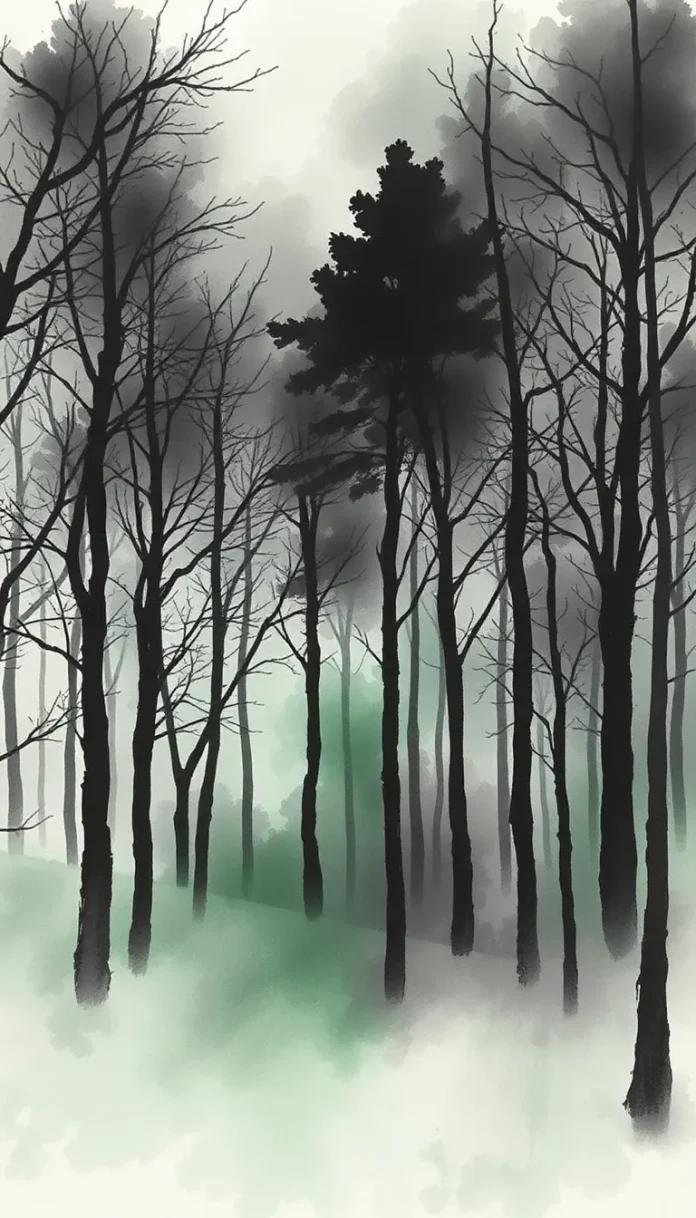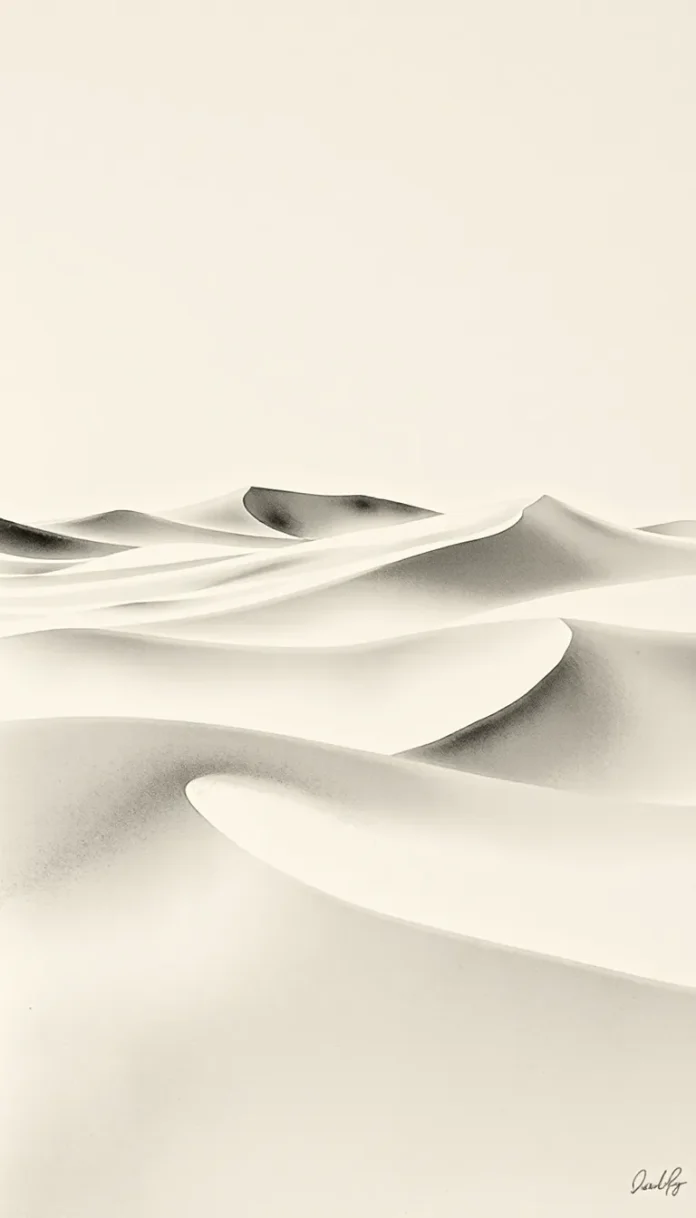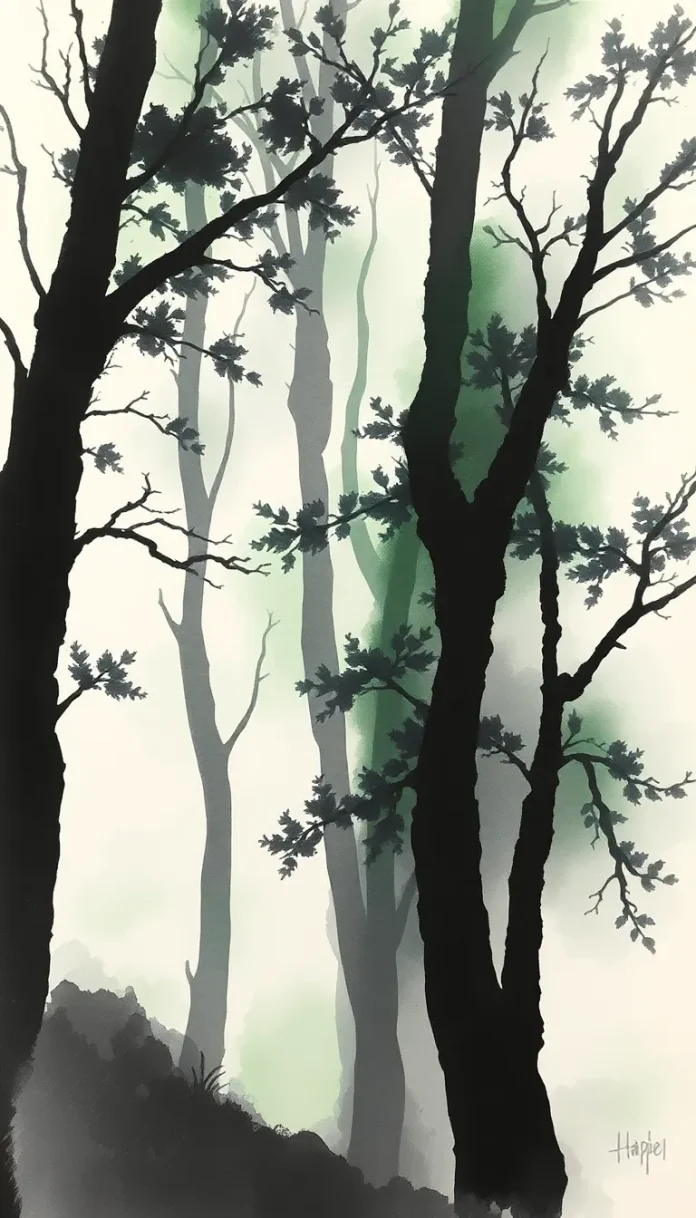Echoes of an Abandoned Fate
I.
In the wan light of an autumn eve, when the chill of dusk entwined with the breath of distant memories, our tragic wanderer strode along the cobblestones, weighed by an unremitting burden. The courtyard, strewn with shattered remnants of forgotten revelries, sang a ballad of desolation through the murmurs of the wind. As the sighing breeze stirred fallen leaves, each a tender relic of lost dreams, the figure paused before a grand archway, its stone facade obscured by time’s relentless caress.
“Must I, hapless wanderer, resign myself to the unceasing wheel of despair?” he murmured unto the gathering gloom, his voice a blend of sorrow and defiance. His eyes, brimming with the liquid sorrow of countless regrets, fixated upon a distant, refulgent star—a silent herald of a hope that seemed forever beyond his grasp.
II.
Within the palace of ruined stone, stories of old whispered invisibly from every corner, each telling of glory shattered by the inexorable touch of fate. Upon the cold, weathered flagstones lay remnants of laughter, now but echoes of a time when passion and ambition had alight like fervent fireflies against the night. Yet, amid these vestiges of vanished splendor, the lone soul carried a burden beyond mortal ink—a destiny scrawled in the dark margins of existence.
His footsteps resonated like a dirge, his every pace enmeshed within the fabric of inevitability. In that forsaken courtyard, he recalled words long deposited into the vaults of memory: “Gift or curse, thine hour is nigh, for mortal hearts are but fragile keeps of unalterable fate.” And so, beneath the spectral glow of a waning moon, he journeyed deeper into the labyrinth of his own despair.
III.
Beneath the guise of ancient arches and silent corridors, he encountered vestiges of his past: a tarnished mirror reflecting not the present self, but the visage of a younger man replete with dreams untainted by sorrow. With trembling hand, he caressed the dust-ridden glass, his mind adrift in a sea of recollections—a time when love and ambition danced in bright unison. Yet, the tender echoes were swallowed whole by the dark void of the present, where regret and fatality conspired in a grim duet.
“Alas, how the fates conspire!” he soliloquized, his words barely carried by the whispers of the night. “In the labyrinth of time do I find myself ensnared, a victim of destiny’s relentless decree—a cursed heir to ceaseless desolation.” His inner tumult reverberated within the ebon corridors of his soul, each thought a tremor that resonated with the weight of existence itself.
IV.
Amid the ruin’s relentless decay, Nature too mourned the scars of lost grandeur. Vines, like sinewy fingers of a spectral lament, clutched the cold stones, as if eager to mend the heartbreak embedded in the castle’s bones. The melancholy murmur of a neglected fountain mingled with the rustle of briers, crafting a requiem for dreams long extinguished. And in this eerie symphony of loss, our wanderer’s thoughts too took on a cadence of despair.
“My soul, a mere vessel fraught with the burden of inescapable doom,” he whispered into the hollow gloom. Beneath his breath, the words echoed off walls which had long borne witness to the inexorable cycle of hope and despair—a stark reminder that the maze of existence offers no sanctuary but in the shadows of inevitable decline.
V.
Thus, in the depth of the ancient courtyard, where time itself seemed to slide into oblivion, the figure encountered the spectral reminiscence of a kindred spirit—a lone, ghostly apparition who moved with the measured grace of one attuned to the cadence of lost destinies. In a fleeting moment suffused with an ineffable sadness, their eyes met, and in that glance lay an unspoken conversation of hearts entwined by the melancholy of fate.
“Tell me, spectral friend, do you too share the weight of an unalterable destiny?” he asked, his voice a fragile thread strung across the vast emptiness.
The ghost, its voice like the rustle of fallen leaves, replied, “In the mirror of our souls, we see the unyielding script that binds us; each life a page wrought with sorrow, each chapter a testament to the fateful conditions of our mortal coil.”
Thus, the two kindred spirits exchanged lamentations that hung heavily in the ancient air, and their dialogue was as fleeting as it was profound—a momentary interlude in the eternal opera of despair.
VI.
By the flicker of a distant lantern’s glow, the night unfurled like a tapestry of despair, weaving tales of inadequacy and lament. The spectral guide receded into the depths of the ruin, leaving the lone wanderer to confront the inexorable march of his apparition—a reminder of life’s fragile institution against the unstoppable tide of fate. The castle, in its impotent magnificence, seemed to weep for him, its very stones heavy with the sorrow of lost promise.
In the silent cadence that followed, a monologue arose from the depths of his tormented heart, as if the corridors of the old château itself had lent its voice to his inner agony:
“Dare I dream of an escape from this morrow of endless rue? Every stone, every breath of wind in this forsaken court speaks of a destiny too cruel to be defied. How can one ever transcend the chains of that grim curse when the stars themselves conspire with the fates to weave a tapestry of despair?”
And so, with each lament, the tragic pulse of his existence interwove with the stark silence that defined the realm of abandonment.
VII.
In the ensuing hours, as the cold mantle of the night pressed upon him, he ventured towards the remnants of an ancient garden that clung desperately to life. Here, what once had been a verdant paradise now lay in disrepair, wild blooms mingling with decay as nature’s tenacious spirit battled the ravages of time. Along a crumbling cobblestone path, wilting roses, their petals a morose hue, seemed to murmur softly of the ephemeral nature of hope.
There, amidst the overgrown hedges and broken statues, he beheld a solitary bench—a relic of moments happier than now. Seated upon it, as if in quiet communion with the languor of fate, was a figure bathed in an ethereal glow. This unexpected stranger, a keeper of unspoken grief, gazed mournfully at the withering petals around them.
“Do you too wander, lost in the labyrinth of destiny?” he inquired, his tone resonant with both compassion and resignation.
The keeper’s eyes, laden with the embers of sorrowful tales, replied, “We are all prisoners of the same relentless design, our lives but canvases on which the merciless hand of fate has painted strokes of inevitable desolation.”
For a fleeting moment, the two souls shared a silence thick with understanding, their unspoken words weaving bonds of mutual anguish.
VIII.
As the hours waned and the spectral glow of the moon waned behind whispering clouds, the weight of eternal sorrow pressed ever more incisively on the wanderer’s heart. With the lingering trace of the spectral companion still haunting his steps, he ascended a spiralled stairway that snaked within the innermost sanctum of the courtyard. Each step bore the cadence of an inexorable march toward a destiny foreordained—a final ascent into the recesses of despair.
Encased in the timeless gloom of a deserted turret, surrounded by relics of aspirations and dreams abandoned, he sought solace in the solitude. Here, amongst the crumbling remnants of what once was a beacon of hope, he contemplated the nature of his cursed existence:
“Are we doomed to forever trail the echo of our unfulfilled yearnings, condemned to roam lifetimes in search of a love that time cannot restore? Is there solace to be found in the unyielding cycle of despair—a cruel dance choreographed by fortune’s relentless hand?”
These questions, like bitter incantations, reverberated against the stony confines of the turret, their cadence a haunting reminder that the human spirit, though imbued with defiant hope, exists in a crucible of irrevocable sorrow.
IX.
At the zenith of the night’s cold embrace, amidst a labyrinth of crumbling arches and ethereal shadows, an encounter with destiny’s final decree unfolded. The ancient clock tower, its hands forever stilled by the inexorable march of time, chimed no hour but whispered the lament of a fated moment. There, beneath the austere gaze of forgotten portraits and silent vigils of the departed, the manifold inevitability of his destiny reached its nadir.
In the flicker of a solitary candle, he beheld a vision of the life that might have been—a shimmering mirage of laughter, tender affections, and a future unblemished by despair. Yet, as the ghostly strains of a long-lost melody obeyed the mournful winds, the fleeting vision was consumed once more by the bleak visage of his irreversible fate. The realms of possibility and regret merged in a dance macabre, leaving behind the indelible impression of futility.
With a voice fraught with the anguish of generations, he proclaimed, “Oh, cruel fate! Thou art the architect of my despair, the relentless sculptor of my solitary demise. I, a hapless wanderer caught in thy intricate designs, now face the irrevocable sorrow that thou hast bestowed upon the weary heart.” His declaration, a final dirge, resonated through the empty halls—a lament that sought to defy the inexorable nature of fate, yet found no refuge in the cold silence that answered back.
X.
And so, in the vast twilight of that ancient courtyard, the inexorable story reached its melancholic epilogue. As the first blush of a sullen dawn crept over the horizon, the castle’s grand silhouette faded into a tapestry of sorrow and resignation. The forlorn wanderer, his soul marred by the relentless decree of destiny, sank to his knees among the crumbling ruins, each breath a solemn tribute to a past irrevocably lost.
There, on that cold, dew-laden stone, the burden of his fate lay bare—an eternal testament to the tragic condition of the human spirit. The castle, a monument to forgotten glories and dashed hopes, wept silently for the mortal soul condemned to walk the path of despair, its walls echoing with the lamentations of shattered dreams. With tear-streaked eyes and a heart heavy as the ravaged stones at his feet, he murmured a final farewell to the flicker of hope that had once danced so enticingly before him.
In the languid hours of early morn, when the night’s melancholic hymn surrendered to the indifferent procession of time, the tragic wanderer became but another spectral memory within the ruins—a solitary figure lost to the inexorable currents of fate. As the sun’s pallid rays crept over the horizon, they revealed not redemption, but a heart ravaged by the cruel irreversibility of destiny. The light, like a feeble promise, could not erase the shadows that clung bitterly to his soul.
XI.
Thus, so ends the woeful account of Destinataire d’un sort impitoyable. His footsteps, now as silent as the dust upon the ancient stones, marked a lone testament to the unyielding austerity of fate—a fate that sculpted his very being from sorrow and despair. The ancient castle, long evoked by the glittering echoes of dreams both lost and yearned for, bore the scars of a story written in the ink of human frailty and the melancholic strains of inevitable fate.
And in his final, mournful soliloquy—a prayerless meditation on the grievance of existence—he surrendered to the fatal cadence of the cosmos, accepting that the condition of man is but a tapestry interwoven with threads of hope and despair, beauty and ruin. With his last breath carried away by the indifferent winds, he vanished into the annals of memory, leaving behind nothing but a resonant echo in the abandoned cour d’un vieux château.
The melancholy refrain of his life, a dirge to untold dreams, lingered in the silent corridors—a reminder that even the brightest passions may be subdued by the relentless hand of destiny. And as the forlorn light of the new day bled softly into the shadows of despair, the ancient stones whispered one final truth: the beauty of life is eternally entwined with the agony of its inevitable end—a bittersweet symmetry that renders every mortal soul both noble and fragile, forever captive to the unyielding decree of fate.
XII.
Now, as the day ascends in mournful splendor, its pale glow illumines the ruins with a somber grace, the memory of one solitary soul remains imprinted on the weathered stones. His journey—a solemn testament to the tragic condition of man—resonates like a requiem, a bittersweet elegy echoing through corridors of time. The winds of fate, indifferent and eternal, carry his lament away into the vast expanse of a sorrowed world, leaving behind but a solitary note of lament that shall forever haunt the ghostly silence of that abandoned courtyard.
In this final moment, where hope and despair merge into an inextricable tapestry of mortal existence, the story of Destinataire d’un sort impitoyable is sealed within the ruins—a tragic emblem of the human condition, forever etched upon the heart of time. The castle, guardian of his somber tale, stands as a testament to the relentless sorrow that define our mortal paths—a sorrow that, in its inevitable finale, leaves behind nothing but the faint, echoing strains of a life unduly marred by the weight of fate.
And so, in the quiet mourn of a sunless morn, the narrative concludes with the bitter truth that every fleeting spark of hope is destined to be consumed by the relentless darkness—a reminder that within the grand tapestry of existence, even the noblest hearts are fated to suffer, and every journey, however luminous, must ultimately arrive at a mournful end.


